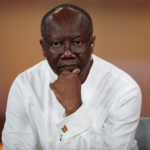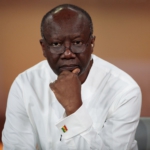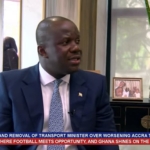
There appears to be a fundamental misunderstanding about the extradition process involving Ken Ofori-Atta. Contrary to popular narrative, there is no real friction between the Office of the Special Prosecutor (OSP) and the Attorney-General’s Department.
The issue at hand is not the transmission of a docket, but the provision of detailed information required to complete Ghana’s extradition paperwork.
While some leaked documents suggest that the Attorney-General requested the case file, no corresponding leak has shown the OSP’s response. That omission is crucial, as it fuels speculation and one-sided conclusions.
Reports indicate that the OSP did, in fact, communicate that the necessary information would be provided once its ongoing investigations were concluded.
If that is the case, then the current uproar seems misplaced. It is worth recalling that the Attorney-General himself once urged patience from critics frustrated by the slow pace of ORAL investigations, explaining that complex financial cases take time.
Yet, when the OSP adopts the same cautious approach, it is accused of causing delays. Such inconsistency suggests that much of the noise around this matter is politically motivated rather than based on process.
The reality is that the OSP remains the only institution that has formally placed Mr Ofori-Atta on a Red Notice and is cooperating with international partners to secure his return.
Extraditing someone from the United States is not inherently difficult; the real challenge lies in demonstrating that the process is free from political interference and that the accused will receive a fair trial. That requirement has stalled other high-profile cases, such as Sedinam Tamakloe’s, despite convictions in Ghana.
Mr Ofori-Atta appears to be exploiting this same line of defence in the U.S., portraying the case as politically motivated. Any leaks or statements that create an impression of internal disunity or political influence only strengthen that argument and undermine Ghana’s position before foreign authorities.
This context underscores why the OSP’s independence is vital. It was designed to serve as a non-partisan prosecutorial body insulated from political pressures and perceptions of bias.
Its measured and methodical approach is therefore not obstructionist — it is strategic. In cross-border enforcement, particularly with jurisdictions like the U.S., credibility depends on demonstrating that investigations are professional, not political.
In that sense, the OSP’s caution is not a weakness but a necessary safeguard to ensure Ghana’s extradition efforts stand up to international scrutiny.
- President Commissions 36.5 Million Dollars Hospital In The Tain District
- You Will Not Go Free For Killing An Hard Working MP – Akufo-Addo To MP’s Killer
- I Will Lead You To Victory – Ato Forson Assures NDC Supporters
Visit Our Social Media for More




